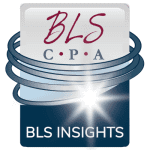 Last summer I wrote a blog entitled, “So You Are Changing Jobs, Are You Forgetting Something?” The point of the article was that in today’s ever-changing world, it is important to take your retirement accounts with you so you don’t forget about them 10-20 years down the road after you have moved 3-5 times. A recent pronouncement by the IRS further supports the need to keep your retirement accounts (and Health Savings Accounts) together so they are not deemed inactive or abandoned.
Last summer I wrote a blog entitled, “So You Are Changing Jobs, Are You Forgetting Something?” The point of the article was that in today’s ever-changing world, it is important to take your retirement accounts with you so you don’t forget about them 10-20 years down the road after you have moved 3-5 times. A recent pronouncement by the IRS further supports the need to keep your retirement accounts (and Health Savings Accounts) together so they are not deemed inactive or abandoned.
Most states have laws that govern when a company must hand over unclaimed, inactive, or otherwise abandoned property to them for “safekeeping”. This process is known as escheatment and the rules vary from state to state. When deferred tax accounts such as retirement accounts are deemed inactive and turned over to the state, does it create a taxable event to the account holder? A new IRS ruling which takes effect January 1, 2019 addresses this issue. The new rule requires a custodian handing over an Individual Retirement Account (IRA) to a state to withhold 10% federal tax. A 1099-R “Distributions From Pensions, Annuities, Retirement or Profit-Sharing Plans, IRAs, Insurance Contracts, etc.” will then be issued in January. If the account holder is under 59½, the taxpayer will be subject to early withdrawal penalties.
Assume that Paul has a Simple IRA from a job he had worked part-time in college. Paul, now 27, has forgotten about the account and has moved several times. Based on state law where he lived at the time, the account now worth $10,000 is ruled inactive/abandoned and therefore handed over to the state. The custodian withholds $1,000 in federal tax and sends the remaining $9,000 to the respective state. Paul unexpectedly receives a 1099-R the following January. If he doesn’t receive the 1099-R — after all, he has moved several times —Paul would receive a tax notice from the IRS regarding unreported income. In this case, after Paul’s research, he can reclaim the money from the state but the damage is already done. In both cases, Paul still must pay tax and early withdrawal penalties on the entire $10,000 distribution even though he technically did not initiate it.
There is a concern that this new rule may unfairly affect the elderly. This is because IRS rules allow a taxpayer age 70½ to take required minimum distributions (RMDs) from a single IRA account. In addition, Roth IRAs are not subject to RMD rules. If a retired taxpayer has several retirement accounts and is only making required minimum distributions from one IRA, there is a concern that one of the taxpayer’s other IRAs or Roth IRA accounts could be deemed inactive by state law.
When you think about it, over the last few years, unclaimed property (or escheatment) has become an easy way for states to cheaply borrow money which may never have to be paid back. Today the rule focuses on IRAs,but at what point will other retirement accounts such as 401(k)’s or Health Savings Accounts get sucked into this rabbit hole?
To protect yourself, consider the following (for all of your accounts):
- Limit the number of accounts you have and keep them with an institution where you have regular activity, such as a bank where you have a checking account or brokerage where you make regular deposits or trades.
- Talk to the representatives of the banks and financial institutions where you have accounts to learn what triggers an account to become inactive. One institution may make an account inactive if there are no transactions for a period of six months while another may treat the act of logging onto their website as activity.
- Log onto the institution’s website and download your statements monthly if not quarterly.
- Keep your mailing address up to date with every financial institution where you have an account.
- Do not ignore inactive notices. Call the institution immediately to inform them the account is not inactive.
As states put pressure on financial institutions in relation to enforcement of escheatment laws, the possibility of an old retirement account getting labeled as abandoned/unclaimed grows. These steps will save you from the nightmare of an unexpected tax bill.
If you have questions or want further information on the above or other income, retirement or estate planning techniques, please contact Belfint, Lyons & Shuman
Photo by Eric Allix Rogers (License)
